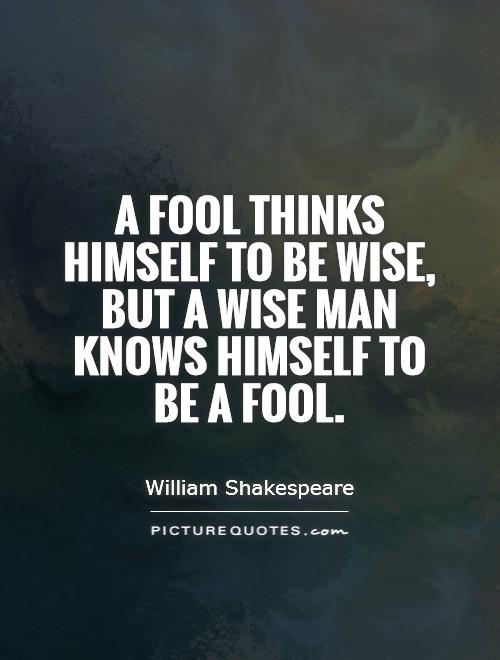A fool thinks himself to be wise, but a wise man knows himself to be a fool

A fool thinks himself to be wise, but a wise man knows himself to be a fool
In the world of William Shakespeare, the idea that "a fool thinks himself to be wise, but a wise man knows himself to be a fool" is a recurring theme in many of his plays. Shakespeare often explores the complexities of human nature and the folly of pride through his characters, highlighting the importance of humility and self-awareness.One of the most famous examples of this theme can be found in the character of King Lear. In the play "King Lear," the titular character is a proud and arrogant king who believes himself to be wise and all-knowing. However, as the story unfolds, Lear's actions and decisions reveal his foolishness and lack of self-awareness. It is only through his suffering and eventual realization of his own folly that Lear is able to gain true wisdom and understanding.
Similarly, in "As You Like It," the character of Touchstone serves as a comedic representation of the idea that a fool may think himself to be wise. Touchstone is a witty and clever court jester who prides himself on his intelligence and quick wit. However, as the play progresses, Touchstone's arrogance and self-assuredness are revealed to be nothing more than a facade. It is through his interactions with the other characters, particularly the wise and insightful Jaques, that Touchstone comes to understand his own limitations and embrace his own foolishness.












 Friendship Quotes
Friendship Quotes Love Quotes
Love Quotes Life Quotes
Life Quotes Funny Quotes
Funny Quotes Motivational Quotes
Motivational Quotes Inspirational Quotes
Inspirational Quotes